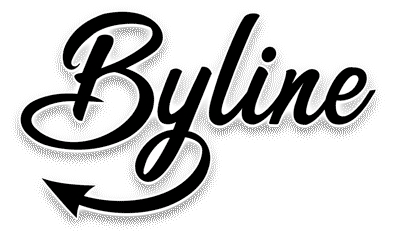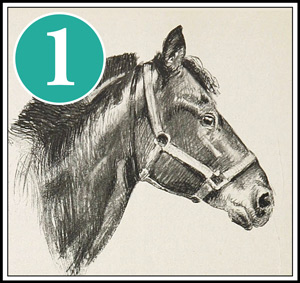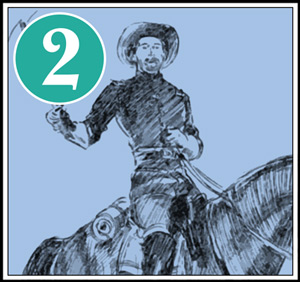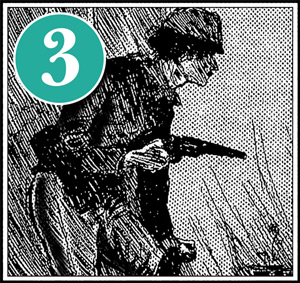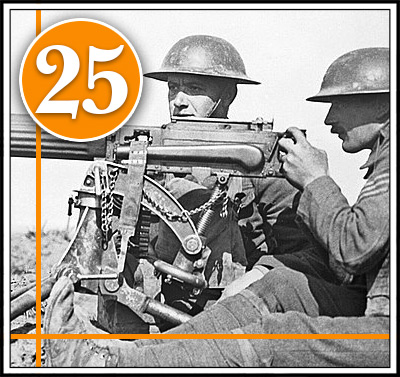
Paris at Bay
Episode 25•
Paris at Bay!
• As the little speck drew straight overhead, these human specks suddenly realized that they were in the line of fire, and scattered just as people run from a sudden shower.
Podcast: Play in new window | Download
Subscribe: Apple Podcasts | Email | TuneIn | RSS

SHOW NOTES ____________
Paris at Bay!
By Arthur Ruhl
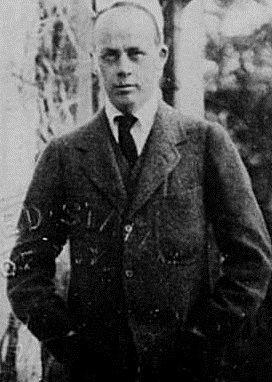
Arthur Ruhl’s passport photo.
The Calais and Boulogne routes were already closed. Dieppe and Havre might at any moment follow. You must go now, people said in London, if you want to get there at all.
And yet the boat was crowded as it left Folkstone. In bright afternoon sunshine we hurried over the Channel, empty of any sign of war, unless war showed in its very emptiness. Next to me sat a young Frenchman, different from those we had met before hurrying home to fight. Good-looking, tall, and rather languid in manner, he spoke English with an English accent, and you would have taken him for an Englishman.
A big canvas bag full of golf-clubs leaned against the wall behind him, and he had been trying to play golf at one of the east-coast seaside places in England. But one couldn’t play in a time like this, and the young man sighed and waved his hands rather desperately—one couldn’t settle down to anything. So he was going home. To fight ?—I suggested. Possibly, he said—the army had refused him several years ago—maybe they would take him now. Very politely, in his quiet manner, he asked me down to tea. When he stood by the rail watching the tawny French cliffs draw nearer, one noticed a certain weary droop to his shoulders, in contrast to his well-tanned, rather athletic-looking, face—born a little tired, perhaps, like the young nobleman in Bernstein’s “Whirlwind.” His baggage was addressed to a Norman chateau.
On the other side was a pink-cheeked boy of seventeen, all French, though he spoke English and divided his time between writing post-cards to the boys he had been visiting in England and reading General von Bernhardi. “The first chapter, ‘The Right to Make War,'” he said, “I understand that—yes! But the second chapter—’The Duty to Make War'” —he laughed and shook his head.
“No—no—no!” He was the son of an insurance agent who was already at the front, and, although under age, he hoped to enlist. We drew nearer Dieppe—tall French houses leaning inward with tricolors in the windows, a quay with the baggy red breeches of French soldiers showing here and there—just such a scene as they paint on theatre curtains at home. A smoky tug whistled uproariously, there was a patter of wooden shoes as children clattered along the stone jetty, and from all over the crowd that had come down to greet us came brave shouts of “Eep-eep Hoorah! Eep-eep Hoorah!”
No news, or at least no reliable news. A lot of wounded had been brought in, business was stopped, the great beach deserted; some thought the Germans would be in Dieppe in a day or two. Our train was supposed to start as soon as the boat arrived and reach Paris before ten that night. It was after dark before we got away and another day before we crawled into St. Lazare. 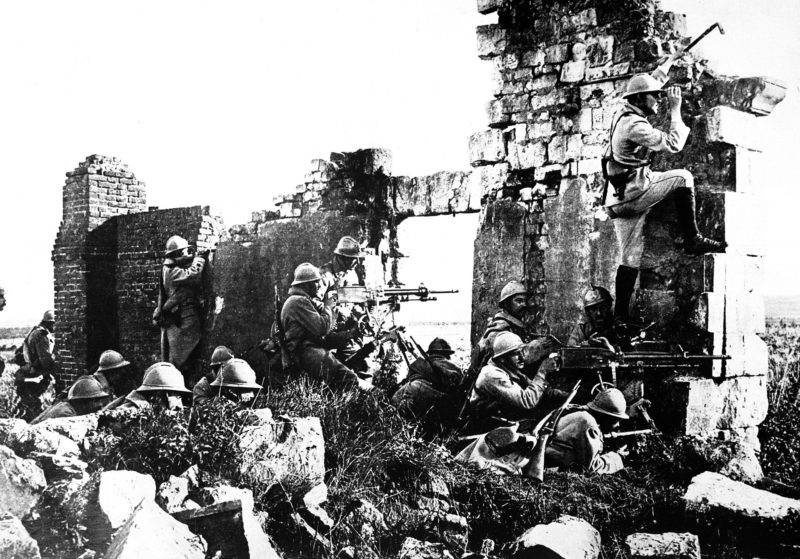
There was a wild rush for places as soon as the gates opened; one took what one could, and nine of us, including three little children, were glad enough to crowd into a third-class compartment. Two ladies, with the three little children, were hurrying away from the battle that their husbands thought was going to be fought near Dieppe within a day or two. From Paris they hoped to get to the south of France. Over and over again the husbands said good-by, then the guards whistled for the last time.
“Albaire!” … and a boy of about six went to the door of the compartment to receive his father’s embrace. “Don’t let the Germans get you!” cried the father, with a great air of gayety, and kissed the boy again and again. He returned to his corner, rubbed his fists into his eyes, and the tears rolled out under them.
Then the two little girls— twins, it seemed, about four years old, in little mushroom hats—took their turns, and they put their fists into their eyes and cried, and then the two mothers began to cry, and the men, dabbing their eyes and puffing vigorously at their cigars, cried good-by over and over, and so at last we moved out of the station.
The long train crept, stopped, backed, crept on again. Through the open windows one caught glimpses of rows of poplar-trees and the countryside lying cool and white in the moonlight. Then came stations with sentries, stray soldiers hunting for a place to squeeze in, and now and then empty troop-trains jolted by, smelling of horses. In the confusion at Dieppe [DEEP] we had had no time to get anything to eat, and several hours went by before, at a station lunchroom, already supposed to be closed, I got part of a loaf of bread. One of the young mothers brought out a bit of chocolate, the other a bottle of wine, and so we had supper—a souper de luxe, as one of them laughed—all, by this time, old friends.
Eleven o’clock—midnight—the gas, intended for a short journey, grew dimmer and dimmer, presently flickered out. We were in darkness—all the train was in darkness—we were alone in France, wrapped in war and moonlight, half real beings who had been adventuring together, not for hours, but for years. The dim figure on the left sighed, tried one position and another uneasily, and suddenly said that if it would not derange monsieur too much, she would try to sleep on his shoulder. It would not derange monsieur in the least. On the contrary…
“You must make yourself at home in France,” laughed the mother of the two little girls. But the other was even more polite.
“Nous sommes en Amerique!” she murmured. The train jolted slowly on. An hour or two after midnight it stopped and a strange figure in turban and white robe peered in. “Complet! Complet!” cried the lady with the little girls. But the figure kept staring in, and, turning, chattered to others like him. There was a crowd of them, men from France’s African colonies, from Algeria or Morocco, who had been working in the French mines and were now going back to take the places of trained soldiers—the daredevil “Turcos”—sent north to fight the Germans.
They did not get into our compartment, but into the one next to it, and as there was no place to sit down, stood in patient Arab fashion, and after a time gradually edged into ours, where they squatted on the floor. They talked broken French or Italian or their native speech and now and then broke into snatches of a wild sort of song. In Paris girls ran into the street and threw their arms about the brave “Marocs” as they marched by, but the lady with the little girls felt that they were a trifle smelly, and, fishing out a bottle of scent, she wet a handkerchief with it and passed it round.
The young Frenchman lit a match—three-twenty. The little boy, rousing from his corner, suddenly announced, apropos of nothing, that the Germans ought to be dropped into kettles of boiling water; at once came the voice of one of the little girls, sound asleep apparently before this, warning him that he must not talk like that or the Germans might hear and shoot them.
We jolted on, backed, and suddenly one became aware that the gray light was not that of the moon. The lady at my left sat upright. “The day comes!” she said briskly. It grew lighter. We passed sentries, rifles stacked on station platforms, woods—the forest of St. Germain.
These woods were misty blue in the cool autumn morning, there were bivouac fires, coffee-pots on the coals, and standing beside these fires soldiers in kepis and red trousers and heavy blue coats with the flaps pinned back. Just such soldiers and scenes you have seen in the war pictures of Detaille and De Neuville. Bridges, more houses, the rectangular grass-covered faces of forts at last; just as Paris was getting up for breakfast, into St. Lazare station, heaped with trunks and boiling with people, Parisians, belated American tourists, refugees from northeast villages, going somewhere, anywhere, to get away. It was September 2.
There were miles of closed shops with placards on the shutters: “Proprietor and personnel have been called to the colors”; no buses or trams, the few ‘cabs piled with the luggage of those trying to get away, almost no way to traverse the splendid distances but to walk. Papers could not be cried aloud on the streets, and the only news was the official communiqué and a word about some Servian or Russian victory in some un-pronounceable region of the East
…In that ghastly silence of Paris, broken only by the constant flight of military automobiles, screaming through the streets on missions nobody understood, those left behind did not even know where the enemy was, where the defenders were, or what was being done to save Paris. And it gradually, and not unnaturally, seemed to the more nervous that nothing had been done—the forts were paper, the government faithless, revolution imminent—one heard the wildest things.
Late that afternoon I walked down from the Madeleine toward the river. It was the “hour of the aperitif”—there were still enough people to fill cafe tables—and since Sunday it had been the hour of the German aeroplane. It had come that afternoon, dropped a few bombs and sailed away to return next day at the same hour. “You have remarked,” explained one of the papers, “that people who are without wit always repeat their jokes.” And just as I came into the Place de la Concorde, “Mr. Taube” came up out of the north.
You must imagine that vast open space, with the bridge and river behind it, and beyond the light tracery of the Eiffel Tower, covered with little specks of people, all looking upward. Back along the boulevards, on roofs on both banks, all Paris, in fact, was similarly staring. And straight overhead, so far up that even the murmur of the motor was unheard, no more than a bird, indeed, against the pale sky, “Mr. Taube,” circling indolently about, picking his moment, plotting our death.
I thought of the shudder of outraged horror that ran over Antwerp when the first Zeppelin came. It seemed the last unnecessary blow to a heroic people who had already stood so much. Very different was “Mr. Taube’s” reception here. He might have been a holiday balloon or some particularly fancy piece of fireworks. Everywhere people were staring upward, looking through their closed fists, through opera-glasses. Out of the arcades of the Hotel de Crillon one man in a bath-robe and another in a suit of purple underclothes came running, to gaze calmly into the zenith until the “von” had gone.
As the little speck drew straight overhead, these human specks scattered over the Place de la Concorde suddenly realized that they were in the line of fire, and scattered just as people run from a sudden shower. This was the most interesting thing—these helpless little humans scrambling away like ants or beetles to shelter, and that tiny insolent bird sailing slowly far overhead.
This was a bit of the modern war one reads about—it was a picture from some fanciful story of Mr. H. G. Wells. They scattered for the arcades, and some, quaintly enough, ran under the trees in the near-by Champs-Elysées There was a “Bang!” at which everybody shouted “There!” but it was not a bomb, only part of the absurd fusillade that now began. They were firing from the Eiffel Tower, whence they might possibly have hit something, and from roofs with ordinary guns and revolvers which could not possibly have hit anything at all. In the gray haze that hung over Paris the next morning, I wandered through empty streets and finally, with some vague notion of looking out, up the hill of Montmartre.
All Paris lay below, mysterious in the mist, with that strange, poignant beauty of something trembling on the verge. One could follow the line of the Seine and see the dome of the Invalides, but nothing beyond. I went down a little way from the summit and, still on the hill, turned into the Rue des Abbesses, crowded with vegetable carts and thrifty housewives. The gray air was filled with their bargaining, with the smell of vegetables and fruit, and there, in front of two men playing violins, a girl in black, with a white handkerchief loosely knotted about her throat, was singing of the little Alsatian boy, shot by the Prussians because he cried “Vive la France!” and threatened them with his wooden gun.
True or not, it was one of those things that get believed. Verses were written about it and pictures made of it all over Paris—presently it would be history. And this girl, true child of the asphalt, was flinging it at them, holding the hearts of these broad-faced mothers in the hollow of her hand. She would sing one verse, pause, and sell copies of the song, then put a hand to her hoarse throat and sing again.
The music was not sold with the song, and it was rather difficult—a mournful sort of recitative with sudden shifts into marching rhythm—and so the people sang the words over and over with her until they had almost learned the tune. You can imagine how a Frenchman—he was a young fellow, who lived in a rear tenement over on the other side of Montmartre—would write that song.
The little boy, who was going to “free his brothers” when he grew up, playing soldier, smashing into the village, crying “Maman! Maman!”—and after each verse a pause, and slowly and lower down, with the crowd joining in: “Little boy, close your big blue eyes, for the bandits are hideous and cruel, and they will kill you if they read your brave thoughts.”
The violins mixed with the voices of the market-women, crying their artichokes and haricots, and above them rang—”Ardent! Vaillant! …” Audit might have been the voice of Paris itself, lying down there in her mist, Paris of lost Alsace and hopeless revanche, of ardor and charm crushed once, as they might be again, as the voice of that pale girl in black, with her air of coming from lights and cigarette smoke, and of these simple mothers rose above the noise of the street, half dirge, half battle-cry, while out beyond somewhere the little soldiers in red breeches were fighting, and the fate of France hung in the balance, that morning.
• • • • • • • • • • • • • • • • • • • • • • • • • • • • • •
By subscribing, you will automatically receive the latest episodes downloaded to your computer or portable device. Select your preferred subscription method above.
To subscribe via a different application: Go to your favorite podcast application or news reader and enter this URL: https://clearwaterpress.com/byline/feed/podcast/
